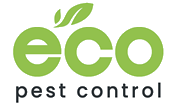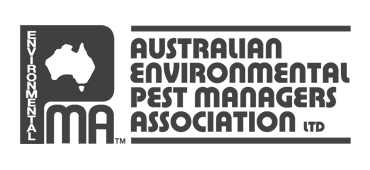Pest Control Licencing in Western Australia

In Perth and across Western Australia, the Department of Health is in charge of pest control licences. They make sure only trained and safe people are allowed to use pest sprays, traps, and other tools for pest work.
Anyone who wants to work in pest control or run a pest management business must have the right licence.
Main Types of Pest Control Licences
There are three main types of pest control licences in WA:
- Pest Management Technician Licence
- Provisional Technician Licence
- Pest Management Business Licence
Each one has different rules and requirements. Below is a full guide to each licence type.
1. Pest Management Technician Licence
This licence lets someone work as a pest control technician. They can spray for pests, use baiting systems, and do other pest-related jobs.
Entrance Requirements
To apply for this, you must:
- Be at least 18 years old
- Be a “fit and proper” person
- Complete the Certificate III in Urban Pest Management
- Understand how to safely handle pest control chemicals
Training Needed
The required training must be completed at a Registered Training Organisation (RTO). This training includes:
- Pest identification and treatment
- Safe use and disposal of pesticides
- Environmental care
- Legal responsibilities
How to Apply
- Complete your Certificate III course
- Gather ID and training certificates
- Fill out the application form
- Pay the fee and send everything to the WA Department of Health
Licence Conditions
- Carry your licence while on the job
- Only perform work you are trained and licensed for
- Follow all pesticide laws and safety regulations
- Report any change in name or address to the Department
Disciplinary Action
If you don’t follow the rules, the Department may:
- Give you a warning or fine
- Suspended or canceled
- Take legal action for serious cases
2. Provisional Technician Licence
This is for people who are learning how to become pest technicians. It allows them to work under close supervision.
Eligibility Requirements
You must:
- Be 18 years old or more
- Be studying for the Certificate III in Urban Pest Management
- Work under the supervision of a licensed technician
Needed Training
You must be enrolled in the required training course while holding this.
How to Apply
- Show proof that you started the training course
- Add the name and details of your supervisor
- Fill out the application and pay the fee
- Send everything to the Department of Health
Licencing Conditions
- You must always work under supervision
- You can’t work alone
- This is valid for 12 months and cannot be renewed
Disciplinary Action
If you break the rules, the Department can cancel your licence and may stop you from applying again.
3. Pest Management Business Licence
This is needed for running a pest control company. You need it if you want to hire others and offer pest control services.
Requirements
To apply, you must:
- Hold a valid PMT Licence
- Have public liability and professional indemnity insurance
- Register your business with an ABN
Training
No extra training is needed beyond your technician qualifications, but you must understand your legal responsibilities as a business owner.
Application Steps
- Fill out the application form
- Include your licence and proof of insurance
- Pay the required fee
- Submit all documents to the Department
Conditions
- Only employ licensed technicians
- Show your licence number in all ads and signage
- Keep records of all pest jobs and chemical use
- Report changes in business ownership to the Department
Actions Taken
Breaking rules may result in:
- Suspension or cancellation of the business licence
- Legal penalties
- Being banned from running a pest business
Fumigation Licence for Special Pest Work
To perform fumigation, which uses gas to kill pests, you need a special license. You must be trained and prove you can do the work safely.
You’ll need to:
- Complete a fumigation course from a registered training organisation
- Get a Declaration of Assessment showing you are competent
The Department of Health does not provide this training but shares a list of approved courses.
Recognition of Past Training
If you’ve already completed similar courses, you might qualify for Recognition of Prior Learning (RPL). This means some of your past training could count toward your pest management qualification. Contact an RTO to find out more.
Lost or Expired Licences
If your licence is lost or damaged, you can ask for a replacement for a small fee. If it expires, you must renew it before doing any pest control work.
FAQs
Do I need a licence to spray for bugs in my own home?
No. You only need a licence if you’re doing pest management as a job or business.
How long does a pest licence last?
Usually 3 years. You must renew it before it expires.
Can I run a pest business without being a technician?
No. You must first become a licensed technician.
Where do I report someone working without a licence?
Contact the WA Department of Health at (08) 9222 2000.

Conclusion: Pest Management Licensing in Perth
Pest control is important work, and it must be done the right way. Getting the proper licence shows that you’re trained, responsible, and ready to protect people and the environment.
If you’re planning to work as a technician or start your own pest control business in Perth, follow the steps carefully. Get trained, apply for the right licence, and always follow the rules.
Doing things the right way helps keep everyone safe and builds a strong future for your career in pest control.



Leave A Comment
You must be logged in to post a comment.